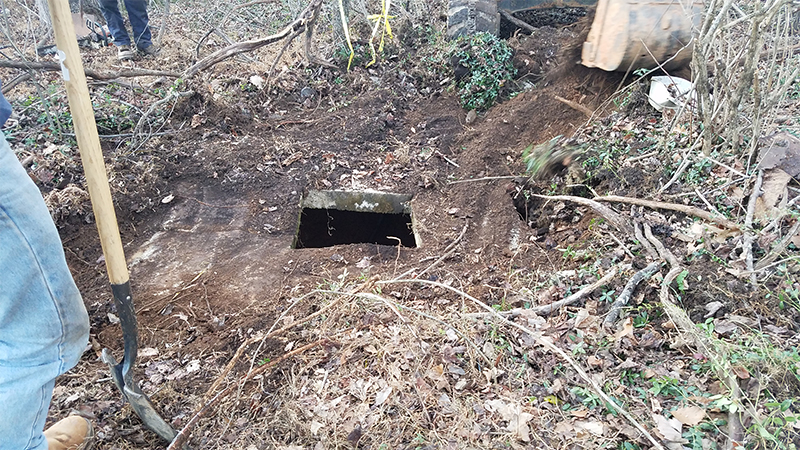Human and groundwater safety part of remediating abandoned wells
Published 10:00 pm Friday, May 12, 2017

- An abandoned drinking water well before remediation (or being “properly abandoned”).
If one stacked together all the jokes about wells and well-diggers, they might stand tall enough to fill one of the abandoned wells in Polk County.
However, the Rutherford/Polk/McDowell District Health Department does not joke about abandoned wells, or their danger to unsuspecting humans, pets, other critters, and the water table itself.
According to Mark Prince, an environmental health specialist with the Polk County Health Department, his office receives notices of abandoned wells and then takes steps to fill and seal them, and make them and their surrounding ground appear to have never been disturbed.
Trending
In the last 20 years, Prince noted, about three abandoned wells were reported a year. He said his department recently put out a notice to help property owners report such wells.
Most of these abandoned wells, said Prince, are hand-dug (reflecting the only technology available at the time), and as deep as 100 feet. One has to wonder at the strength and trust of anyone who has stood that far down in what could be a self-made grave. Prince noted that the clay-like nature of much of the region’s soil made such depths easier to achieve and less susceptible to constant cave-ins.
Once notified of such wells, often by a new property owner, the department makes sure the wells are “properly abandoned.” Landowners need a permit, and may perform the work themselves, or have a local well driller do that, as most landowners lack the needed equipment.
“Part of our process is to make sure a seal is there,” Prince said.
“The wells we’re concerned about,” Prince said, “are hand-dug or bored.”
Those wells have been dug or bored until the operator hit water or consolidated rock. “They go until they can’t go any farther,” Prince noted.
Trending
Drilled wells can be as deep as or deeper than 800 or 900 feet, said Prince, as shallower drilled wells might run dry.
In Polk County, bored wells, made with 24-inch diameter augers, are typically 60-80 feet deep, where consolidated rock was hit.
While these older wells might be unsightly, they are “mostly a safety concern,” Prince remarked. Reports of humans or pets falling down wells of any depth are horrific enough to make almost anyone cringe.
“I hope nothing like that happens in our county,” Prince remarked. A person, he noted, “can walk into one and disappear.”
In addition to immediate safety concerns, Prince pointed out that groundwater contamination is another threat, as long as older wells remain open to trash disposal.
“If there’s a hole, people will throw trash in it,” he said. Household and lawn chemicals can also easily enter groundwater through open wells.
If landowners don’t report older, open wells, health department officials would be unable to arrange for their abandonment.
“We wouldn’t even know where to look,” Prince admitted. “We’re completely dependent on the well owners notifying us.”
For wells in Polk County, call the department at 828-894-8004, or stop by the Polk County Health Department office at 161 Walker Street, Columbus. Landowners must receive a permit for this process, but through September 22 of this year, no fee is charged. After that, the fee will be $50 per well.
Health department officials can also provide a list of well drillers who can fill and seal the old wells, and make the surrounding area appear undisturbed.
Abandoned wells are listed as “imminent hazards,” Prince noted.
“The beauty of abandoning a well properly,” Prince said, “is it’s like it didn’t exist.”





